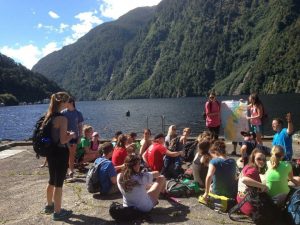There are few things more exhilarating than your first overseas travel experience. Smarter Travel has a few helpful hints to ensure an awesome adventure.
Learn the basics: You don’t necessarily need to be fluent in the local language of your destination but knowing a few basic words will certainly be to your advantage.
Understand the currency exchange rate: Most people prefer to control their spending while traveling, a newbie tourist is a red flag for scammers and tourist traps. Knowing the cost of something in your own currency can save you from overpaying for something simply because you don’t understand the price.
How to count to 10 – Knowing basic numbers can help if you are negotiating and can keep you from having to hold up your fingers all the time.
Simple words – Know how to say “yes”, “no”, “thank you”, “hello” and “goodbye”. These words are applicable to almost any situation you find may yourself in. You may think you can coast by with head and hand gestures, but the meaning of such gestures varies based on where you are traveling.
Be less adventurous until you have your bearings: You are susceptible to all sorts of errors and bad choices upon arrival in a new country, don’t start your trip on the wrong foot.
Transportation – Take the hotel shuttle, book a taxi from an accredited taxi booth (you can usually book these online before even reaching your destination and have them waiting for you at the airport), or head for an information desk. Taking simple steps to plan ahead can help you avoid a potentially messy start to your trip.
Prepare for the complexity of international airports: International airports often serve as routine connecting or layover airports for people coming and going from all over the world. You may fly into a county’s major airport and then go to the domestic terminal to connect on a shorter flight. Arriving and connecting at busy international hubs might be a bit of a production – collecting bags and rechecking them, going through security, standing in line for passport control, and taking a train or bus between terminals. Make sure to give yourself enough time (at least 2 hours) for international connections.
Hotel managers run the hotel: International hotels are run similar to independent businesses where the manager is the one in charge. At smaller hotels and even some chains you will likely be doing all business directly with the manager. He or she can frequently negotiate price, add extras like breakfast and more. Emails to the hotel, reservation extensions and complaints are typically handled by one person.
Airport security is a special case: The process for entering the United States may be tricky whether you are a returning citizen or someone visiting from overseas. It isn’t unusual for American security to constantly change, and you may have to go through more than one security checkpoint before boarding. The second security checkpoint is usually run by the United States, so you may not have to go through further security checks once you touch down because you are technically on “United States soil” once you go through the second checkpoint. Be prepared for the fact that you might not be able to leave the gate area once you go through the second security checkpoint.
Another important best practice for international travel is to get travel insurance! You never know what may happen while you are traveling, and you can never be too prepared. TravelersAlly has plans for every type of traveler.






